PDF Document Viewer
Collections and Organization FeaturesNavigate, display, and manage complex
document structures
The Collections feature group in our PDF Viewing SDK provides comprehensive capabilities for organizing, navigating, and manipulating document structures and content. These features enable developers to implement sophisticated document management functionality, allowing end-users to efficiently navigate through documents, customize page displays, edit content, and manipulate document structure.
With support for bookmarks, page rotation, content editing, metadata management, and advanced page operations, the Collections feature set serves as the foundation for creating feature-rich document viewing and editing experiences that maintain document integrity while enabling powerful customization options.
Features Summary
Features Details
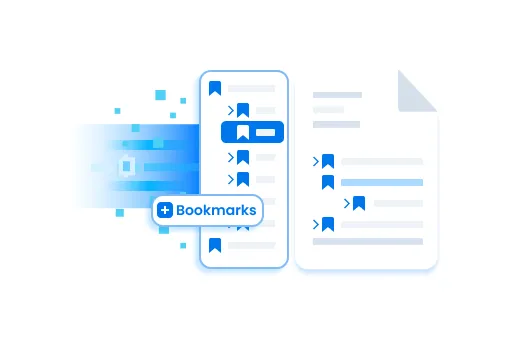
Bookmarks
The Bookmarks feature provides programmatic access to a document's navigation structure, allowing developers to create, modify, and manage hierarchical bookmarks within PDF documents. This capability enables applications to implement intuitive document navigation, custom table of contents, and personalized bookmark systems that enhance user productivity. The SDK supports both reading existing bookmark structures and creating new ones, with full control over bookmark destinations, appearance, and hierarchical relationships. Bookmarks can target specific pages, view states, or even external resources, providing flexible navigation options for complex document workflows.
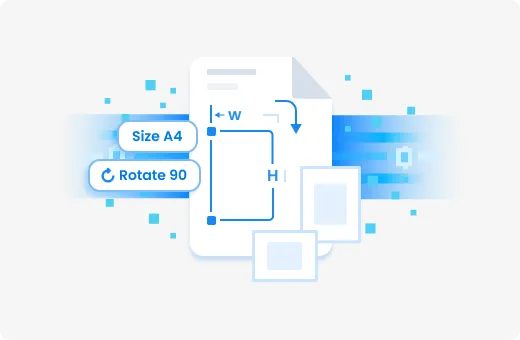
Page Size & Rotation
The Page Size & Rotation feature gives developers precise control over how document pages are displayed and printed. With this capability, applications can adjust page dimensions, orientation, and rotation angles to optimize viewing experiences across different devices and screen sizes. The SDK enables permanent or temporary page rotation, custom page sizing, and responsive layout adjustments that maintain document fidelity while adapting to viewing contexts. This feature is particularly valuable for handling documents with mixed page orientations or when implementing specialized viewing modes that require custom page presentation.
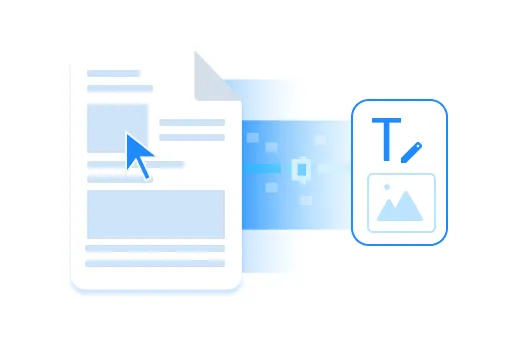
Page Content Editing
The Page Content Editing feature empowers applications with the ability to modify document content directly within the PDF structure. Developers can implement text editing, object manipulation, and content replacement operations that maintain document formatting and layout integrity. The SDK provides granular control over content selection, modification, and styling, enabling applications to offer document correction, form filling, and content updating capabilities. With support for both text and graphic elements, this feature enables sophisticated document editing workflows while preserving the document's underlying structure.
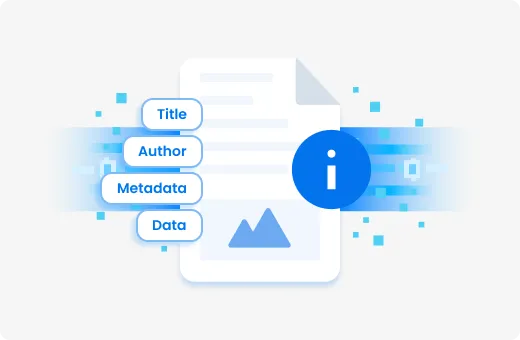
Document Info & Metadata
The Document Info & Metadata feature provides access to a document's properties, enabling applications to read and modify information such as title, author, creation date, and custom metadata fields. This capability allows developers to implement document management systems with robust metadata support, enabling advanced search, categorization, and workflow automation based on document attributes. The SDK supports both standard PDF document information dictionaries and XMP metadata, providing comprehensive access to document properties. Applications can leverage this feature to implement document versioning, compliance tracking, and intelligent document processing based on metadata values.
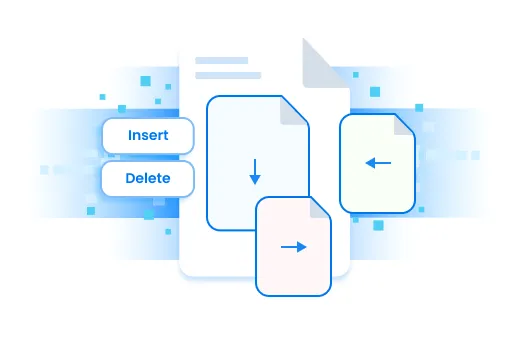
Page Manipulations
The Page Manipulations feature delivers powerful document restructuring capabilities, enabling applications to insert, delete, create, and move pages programmatically. Developers can implement document assembly workflows, page extraction, document splitting, and merging operations with precise control over page placement and content preservation. The SDK ensures that page manipulations maintain document integrity, including preserving links, annotations, and interactive elements during restructuring operations. This feature enables applications to offer sophisticated document composition tools that allow users to create custom documents from multiple sources or reorganize existing content to meet specific requirements.
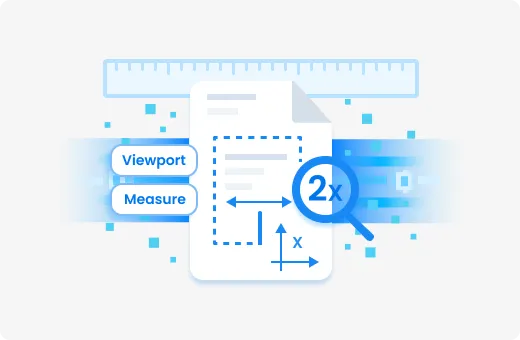
Page Viewports & Measurements
The Page Viewports & Measurements feature provides precise control over viewing areas and document measurement capabilities. Developers can implement custom viewing windows, magnification levels, and coordinate transformations that optimize document display for specific use cases. The SDK supports accurate measurement of distances, areas, and positions within documents, enabling applications to implement technical drawing review, document analysis, and precision layout tools. With support for different measurement units and coordinate systems, this feature enables applications to present document content with the appropriate scale and positioning for specialized workflows.
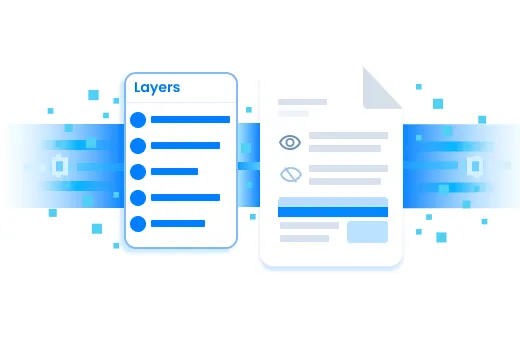
Layers & Optional Content
The Layers & Optional Content feature gives developers control over conditional content visibility within PDF documents, enabling applications to implement interactive layer management for complex documents. The SDK provides access to Optional Content Groups (OCGs), allowing selective display of document elements based on user preferences, permissions, or workflow requirements. Applications can implement custom layer controls, visibility presets, and conditional display logic that enhance document usability for technical documentation, architectural drawings, or multi-language content. This feature enables rich interactive experiences while maintaining document compatibility with standard PDF viewers.
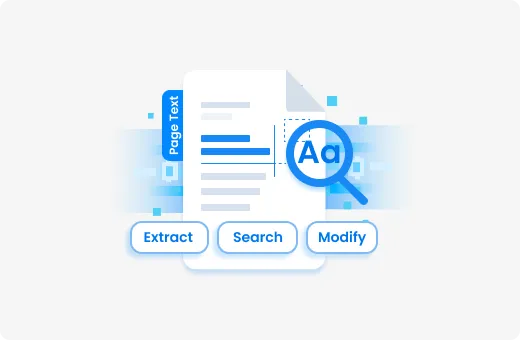
Page Text
The Page Text feature provides granular access to text content at the page level, enabling applications to implement sophisticated text extraction, search, and manipulation capabilities. Developers can access text elements with their precise positioning, styling, and structural relationships, enabling accurate content extraction for data mining, search indexing, or content repurposing. The SDK maintains text flow information, enabling applications to implement intelligent text selection, highlighting, and modification while preserving document layout. This feature serves as the foundation for implementing advanced search functionality, content analysis, and text-based automation within PDF documents.